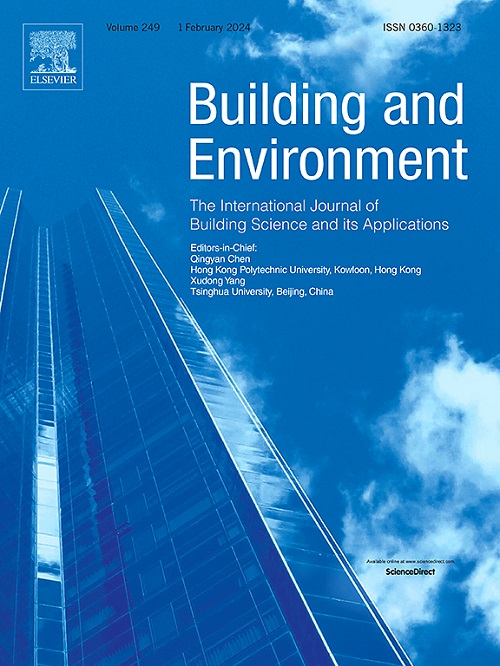审查HVAC预测和控制策略,以提高建筑性能
IF 7.6
1区 工程技术
Q1 CONSTRUCTION & BUILDING TECHNOLOGY
引用次数: 0
摘要
高效的暖通空调(HVAC)运行策略是现代建筑实现高能效和令人满意的室内环境质量的关键。最近,数据驱动策略,特别是那些利用人工智能(AI)技术的策略,已经展示出卓越的预测准确性和自适应控制能力,从而实现更快速、更高效的暖通空调系统管理。本研究总结了最近建筑暖通空调系统的预测和控制策略,将其分为三个研究角度,即改善居住者的IEQ,提高建筑管理者的暖通空调能源效率,以及智能控制和环境分析方法,以支持研究人员的创新。虽然数据驱动的方法显示出更高的精度和灵活性,但在数据集质量、不确定性处理、计算成本、模拟真实验证和模型解释方面仍然存在挑战。混合方法集成了基于模型和数据驱动的技术,以及先进的特征融合和提取,在状态预测和建筑暖通空调控制方面显示出强大的潜力,可以提高策略的鲁棒性、透明度和通用性。此外,本研究还发现,考虑不同时间尺度信息是进一步提高暖通空调预测控制性能的一个有价值的方向。解决这些差距对于加速下一代HVAC控制系统的部署至关重要,这些系统可以有效地平衡大型建筑物的能源效率和居住者舒适度。本文章由计算机程序翻译,如有差异,请以英文原文为准。
Review of HVAC forecasting and control strategies for improved building performance
Efficient Heating, Ventilation, and Air Conditioning (HVAC) operation strategies are critical to achieving both high energy efficiency and satisfactory Indoor Environmental Quality (IEQ) in modern buildings. Recently, data-driven strategies, particularly those leveraging Artificial Intelligence (AI) techniques, have demonstrated superior forecasting accuracy and adaptive control capabilities, enabling more responsive and efficient HVAC system management. This study summarises recent forecasting and control strategies for building HVAC systems, categorising them into three research perspectives namely, improving IEQ for occupants, enhancing HVAC energy efficiency for building managers, and intelligent methods in control and environmental analysis to support innovation for researchers. While data-driven methods demonstrate higher precision and flexibility, challenges remain regarding the dataset quality, uncertainty handling, computational cost, sim-real validation, and model interpretation. Hybrid methods that integrate model-based and data-driven techniques, along with advanced feature fusion and extraction, show strong potential to improve robustness, transparency, and generalisation of strategies in condition forecasting and building HVAC control. Furthermore, this study also finds that considering different time-scale information is a valuable direction to further enhance HVAC predictive control performance. Tackling these gaps will be pivotal for accelerating the deployment of next-generation HVAC control systems that can effectively balance energy efficiency and occupant comfort in large buildings.
求助全文
通过发布文献求助,成功后即可免费获取论文全文。
去求助
来源期刊

Building and Environment
工程技术-工程:环境
CiteScore
12.50
自引率
23.00%
发文量
1130
审稿时长
27 days
期刊介绍:
Building and Environment, an international journal, is dedicated to publishing original research papers, comprehensive review articles, editorials, and short communications in the fields of building science, urban physics, and human interaction with the indoor and outdoor built environment. The journal emphasizes innovative technologies and knowledge verified through measurement and analysis. It covers environmental performance across various spatial scales, from cities and communities to buildings and systems, fostering collaborative, multi-disciplinary research with broader significance.
 求助内容:
求助内容: 应助结果提醒方式:
应助结果提醒方式:


